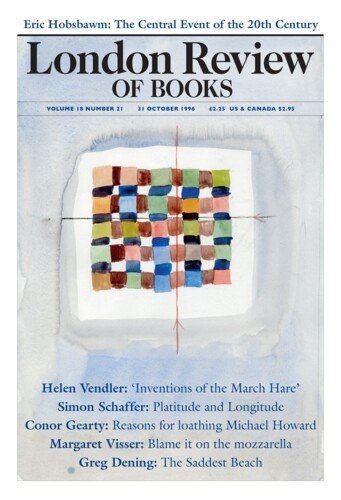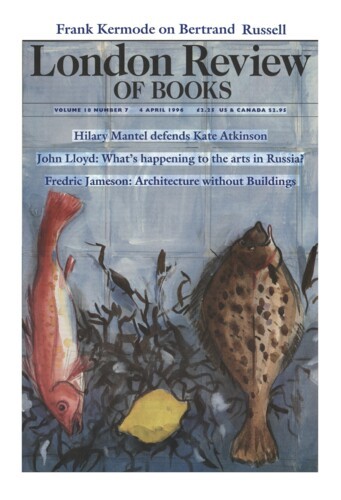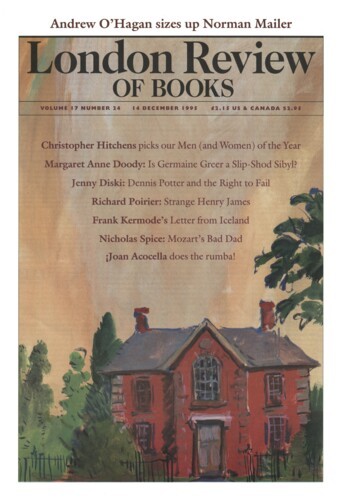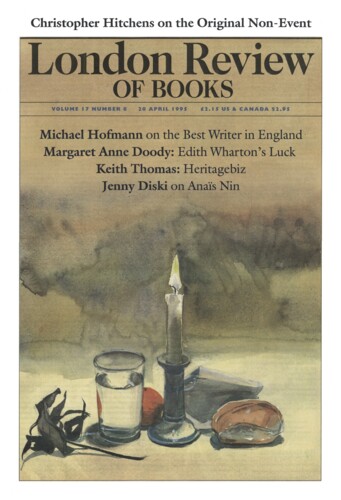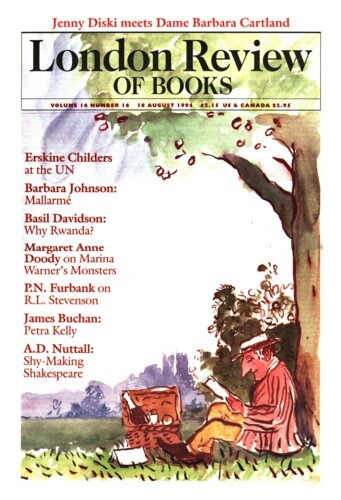Docility Rampant
Margaret Anne Doody, 31 October 1996
Lady Mary Wortley Montagu (1689-1762) is known to us as the author of travel writings, witty poems and remarkable letters. If it were not for Isobel Grundy’s diligent work in the archives, we should not know that Lady Mary also produced prose fiction. This is hardly strange. She published in her own time neither the travel writings nor (of course) her letters to her daughter. She permitted the public to enjoy only a few poems (and one anonymously edited journal). These were written during brief periods of unusual literary confidence, and of association with literary people in London. In 1716 she travelled to Turkey, where her husband was sent as a rather incompetent ambassador. The best result of their two years’ residence in Turkey was the volume familiarly known to us as Turkish Letters. By 1724 she had prepared the collection for the press. At her request, Mary Astell, the leading feminist of her day, supplied the Preface. But Montagu was persuaded, chiefly by her husband’s relatives, not to do anything so foolish and damaging to her status and his career as to publish the book, and it was not printed until the 1790s, long after her death. The volume of travels and observations would probably not have pleased the authorities in Constantinople, and would certainly have been shocking to English society in the reign of George II. One of the letters describes a visit to a harem, in what is among the most elegantly erotic scenes in travel literature. Montagu constantly discusses sexual mores and paradoxically praises the unusual freedom that the complete shrouding of a supposedly modest woman can allow for the conduct of an assignation, since a woman’s own husband couldn’t recognise her if he met her on the street. Montagu tells us that she – a Western woman, nominally, at least, not only English but Christian – went about in heavy veils and dress disguised as a Turkish woman and was able to see sights which were forbidden to male travellers, or to Western females in European garb. At some point she disguised herself as a Turkish man in order to move about more freely still. Her letters repeatedly work on the motifs of disguise and freedom, and the relation between the two. Nobody knew better than Montagu that heavy veiling is in use in English polite society.’
